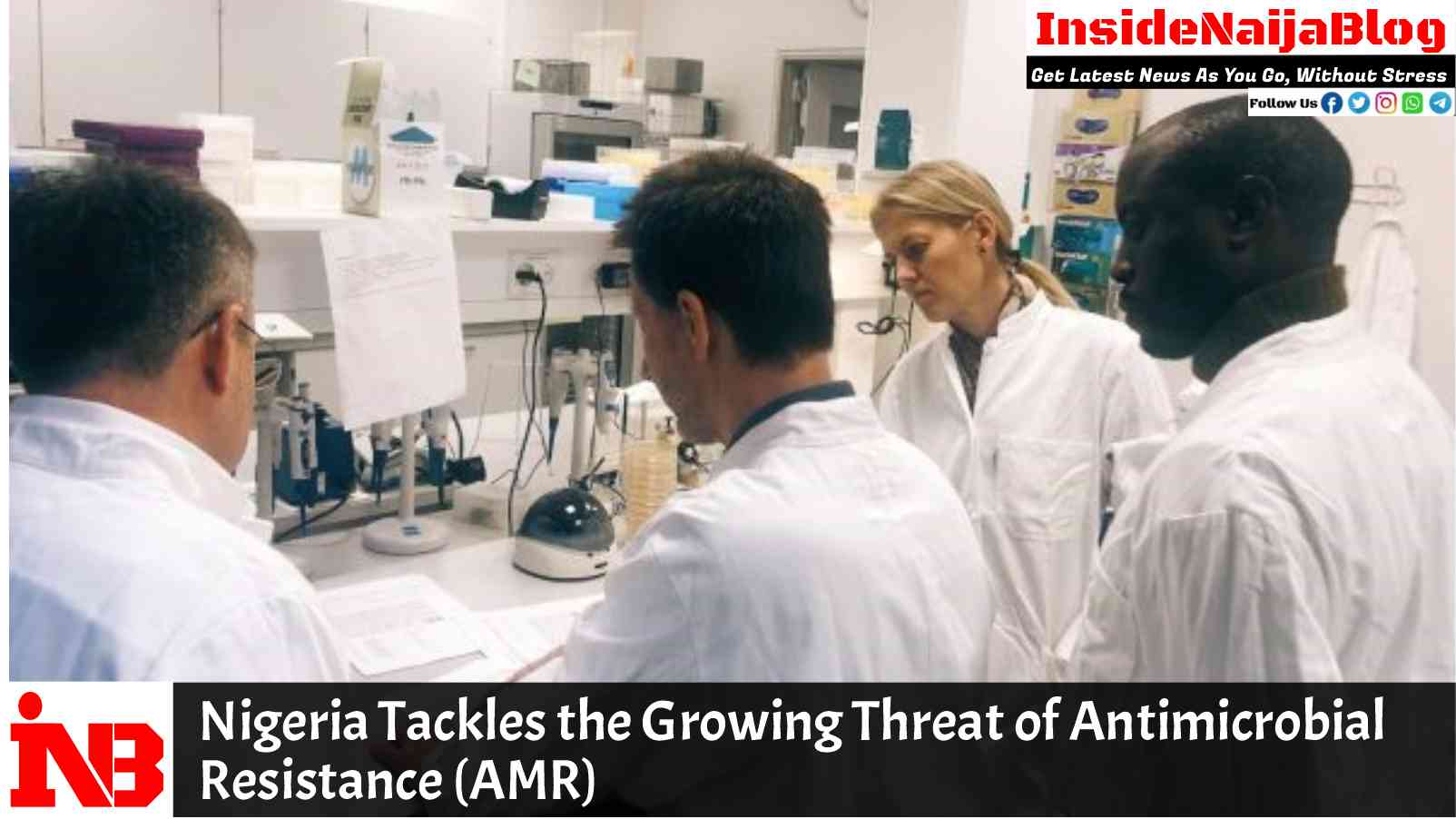Antimicrobial resistance (AMR) is increasingly recognized as a global health crisis with potentially catastrophic consequences for public health, agriculture, and the environment. In Nigeria, as in many other countries, the misuse and overuse of antibiotics are contributing significantly to the rise of drug-resistant bacteria, which threatens to undo decades of medical advancements. Experts emphasize that combating AMR requires a One Health approach—recognizing the interconnectedness of human health, animal health, and environmental health.
The Global Impact of AMR
AMR is already causing significant deaths worldwide. In 2019, it was directly responsible for 1.27 million deaths and contributed to 4.95 million deaths globally, with 1 in 5 of those deaths occurring among children under 5 years old. Sub-Saharan Africa has been hit the hardest, with 1.14 million of those deaths occurring in the region. By 2021, 4.71 million deaths were linked to bacterial AMR, with 1.14 million deaths occurring in Sub-Saharan Africa alone. This escalating crisis is seen as one of the most urgent global health challenges, and Nigeria is making concerted efforts to address it.
Efforts to Combat AMR in Nigeria
At a recent session marking AMR Awareness Week organized by the National Agency for Food and Drug Administration and Control (NAFDAC), key stakeholders from Nigeria’s health, agriculture, and veterinary sectors met to discuss the urgent need for coordinated action. Prof. Christianah Adeyeye, the Director-General of NAFDAC, highlighted the critical importance of addressing AMR, pointing out that antibiotic misuse in animal feeds is one of the primary drivers of resistance in Nigeria.
Some farmers have been using antibiotics like tetracycline and oxytetracycline in livestock and fish feeds to promote growth, contributing to the development of resistant bacteria that can be passed on to humans when the animals are consumed. Adeyeye emphasized that AMR is already impacting global health, particularly newborn babies who are increasingly contracting resistant infections, sometimes with fatal outcomes.
NAFDAC’s Efforts and Regulatory Measures
NAFDAC has been actively educating farmers and veterinarians on the dangers of overusing antibiotics in agriculture. The agency is promoting alternatives to antibiotics in animal feed and encouraging responsible practices for medical and veterinary professionals. NAFDAC has also implemented regulatory measures to curb AMR, including:
- Restrictions on the formulation of antibiotics,
- A ban on using antibiotics as growth promoters in livestock,
- Prohibitions on certain antibiotics in animal feed.
Despite these efforts, there is a critical lack of national data on AMR in Nigeria, which makes it difficult to assess the full extent of the problem. However, hospital data suggests that newborns in Nigerian teaching hospitals are contracting resistant infections, some of which lead to death due to ineffective treatments.
A National and Global Response
Nigeria’s efforts to combat AMR are part of a broader global initiative. Jens Ole Bach Hansen, a representative from Denmark, shared his country’s experience in fighting AMR, which dates back to 1995. He highlighted the importance of international collaboration, noting that bacteria resistant to antibiotics do not recognize borders, making the problem truly global.
Dr. Yamaha Ridwan, the AMR Focal Person from the Nigeria Centre for Disease Control (NCDC), outlined the economic and health implications of AMR. He warned that by 2050, AMR could cause global losses of up to $100 billion in agricultural production alone, severely affecting Nigeria’s agricultural sector, food security, and export potential. Nigeria has been actively participating in the global fight against AMR since 2012 and is now focused on implementing the second iteration of its National Action Plan on AMR (2024-2028).
Nigeria’s National Action Plan on AMR
The updated action plan aims to improve surveillance, infection prevention, control, and research into alternative treatments. A key component of the strategy is antimicrobial stewardship, which involves ensuring that antibiotics are used only when necessary and in the correct doses and duration. Ridwan emphasized that responsible management of antibiotics is critical to reducing the spread of resistant infections and preserving the effectiveness of existing antibiotics.
The National AMR Governance Manual has been implemented to guide Nigeria’s response, with significant resources allocated for its execution. Nigeria is also working closely with international partners, including Denmark, to share knowledge and best practices in the fight against AMR.
WHO’s Support and AMR Targets
Kapona Otridah, a representative from the World Health Organization (WHO) Regional Office for Africa (AFRO), highlighted the importance of coordinated efforts across multiple sectors—healthcare, agriculture, and the environment—in addressing AMR. Otridah reaffirmed Nigeria’s commitment to meeting global AMR targets, which include:
- Reducing AMR-related deaths by 10%,
- Ensuring the appropriate use of antibiotics in human health,
- Improving access to quality antibiotics for all Nigerians.
In conclusion, Nigeria’s National Action Plan and the country’s growing collaboration with international partners offer hope in the fight against antimicrobial resistance. With ongoing awareness campaigns, regulatory measures, and strengthened cooperation across sectors, there is potential to mitigate the AMR crisis and safeguard public health.



